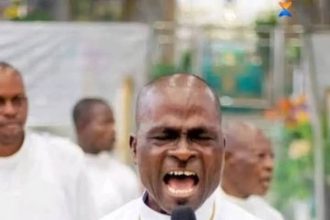
Sometimes apologists and advocates of spiritual formation look askance at each other. What do logical arguments for faith have do to with getting closer to God? How does developing your spiritual life lead to being a better apologist? The answer to both questions is, “In every way!”
Since the publication of Richard Foster’s The Celebration of Discipline (HarperCollins) in 1978, much of the Evangelical world has embraced the concept of spiritual formation through disciplines such as fasting, spiritual journaling, service, biblical meditation, lectio divina, study, and, of course, prayer. Around the same time, there was a resurgence in Christian philosophy and apologetics, indicated by the founding of the Society of Christian Philosophers and the Evangelical Philosophical Society. The spectacular success of Lee Strobel’s book The Case for Christ (Zondervan, 1996) jumpstarted a popular appreciation for apologetics of which I have been happy to be a part.[1] Since then, apologetics programs, conferences, websites, and forums have mushroomed around the country.
While I take issue with some aspects of the spiritual formation movement —particularly some versions of centering prayer — on balance, it has added depth and earnestness to evangelical spirituality.[2] We are summoned to conform to the glorious image of Christ for our entire Christian life, and any biblically defensible practice that encourages this should be embraced. Our lives are really works of art, as the great evangelist and apologist Francis Schaeffer (1912-84) noted.
No work of art is more important than the Christian’s own life, and every Christian is called upon to be an artist in this sense. He may have no gift of writing, no gift of composing or singing, but each man has the gift of creativity in terms of the way he lives his life. In this sense, the Christian’s life is to be an artwork. The Christian’s life is to be a thing of truth and also a thing of beauty in the midst of a lost and despairing world.[3]
We are God’s workmanship in and for our needy world, and Schaeffer’s life was a work of divine art.[4] Spiritual formation means that the Holy Spirit reshapes us into trophies of grace and carriers of divine love. God transformed the Christian-hating Pharisee Saul into an apostle of Christ and the author of most New Testament books (Acts 9). He knew from experience that Christians are becoming “children of God without fault in a warped and crooked generation,” who “will shine among them like stars in the sky” (Phil. 2:15).
But how might apologetics, a supposedly dry intellectual discipline that fosters a know-it-all attitude, contribute to this glorious transformation, if at all? Apologetics is the defense of Christianity as objectively true, compellingly rational, and existentially pertinent to all of life. As Christ followers, we have the privilege and responsibility to engage in apologetics, to have a reason for the hope within us, and to do this with gentleness and respect as we are filled with the Holy Spirit of truth (1 Pet. 3:15–16; Jude 3).
Jesus as an apologist
Jesus engaged in apologetics. Since He is our spiritual model as well as our Savior, we should follow Him. Whoever claims to live in Him must live as Jesus did (1 John 2:6). Christ rationally defended His beliefs as well as propounding them. Jesus shows His apologetic acumen in responding to questions about paying taxes to Caesar (Matt. 22:15–23) and about marriage and the afterlife (22:23–33). The one who said the greatest commandment was to love God with all our heart, soul, strength, and mind, certainly loved His Heavenly Father with His intellect (22:37–40).
Although Jesus was God incarnate, there is no reason to think that He did not develop His intellectual skills, which included His defense of His message. From the age of about 12 until 30, “Jesus grew in wisdom and stature, and in favor with God and man” (Luke 2:52). Since Jesus was a genuine human being (in addition to being divine), He studied and learned throughout His life (although He was not formally trained in the institutions of His day). Jesus engaged God the Father with all of His being (including His mind).[5]
Two leading evangelical philosophers and apologists also embrace spiritual formation — J. P. Moreland and Dallas Willard (1935-2013). Moreland develops a vibrant theology and spirituality of the mind in Love Your God with All Your Mind (NavPress, 2014). Willard wrote many books on spiritual formation[6] but also engaged in apologetics, as seen in Knowing Christ Today (HarperOne, 2014).
Notwithstanding, many Christians do not consider apologetics a discipline conducive to spiritual formation. In a prayer, C. S. Lewis, the greatest Christian apologist of the 20th century, warned of the spiritual dangers of apologetics.
From all my lame defeats and oh! much more From all the victories that I seemed to score; From cleverness shot forth on Thy behalf At which, while angels weep, the audience laugh; From all my proofs of Thy divinity, Thou, who wouldst give no sign, deliver me.
Thoughts are but coins. Let me not trust, instead Of Thee, their thin-worn image of Thy head. From all my thoughts, even from my thoughts of Thee, O thou fair Silence, fall, and set me free. Lord of the narrow gate and the needle’s eye, Take from me all my trumpery lest I die.[7]
Developing and presenting good arguments for Christianity may lead to pride and arrogance. Developing competence may lead to cockiness. But under the tutelage of the Holy Spirit and within the community of the Church, it need not be so. We are to grace indebted, and God’s gifts include sound arguments for the truth of Christianity. Even the mighty intellect of C. S. Lewis was not given to the “trumpery” he feared in his poem, at least in his writings. But he admits he fought that spiritual battle with the flesh.
Spiritual formation involves many elements needed to remake us in the image of Jesus Christ. Paul writes to his “dear children, for whom I am again in the pains of childbirth until Christ is formed in you” (Gal. 4:19). One element is essential for all the rest — that we be “transformed through the renewing” of our minds (Rom. 12:2). Likewise, Peter writes that we should possess “minds that are alert and fully sober,” having set our “hope on the grace to be brought to [us] when Jesus Christ is revealed at his coming” (1 Pet. 1:13).
The Spirit-led mind is a beautiful mind, one submitted to Jesus and committed to the furtherance of the Gospel. We see this mind in action through the preaching and teaching of the apostles Paul and Peter in the book of Acts. Both addressed their audiences with courage, knowledge, and intellectual discipline. The first martyr of the church, Stephen, was murdered while explaining and defending the Christian faith before the high priest and the Sanhedrin. In his last moments before being stoned, he was commended by Jesus Christ Himself. “Stephen, full of the Holy Spirit, looked up to heaven and saw the glory of God, and Jesus standing at the right hand of God. ‘Look,’ he said, ‘I see heaven open and the Son of Man standing at the right hand of God’” (Acts 7:55–56). Surely, these inspired apologetic messages did not pop into Stephen’s and the apostles’ minds fully formed apart from their own study, prayer, and practice.
Studiousness and apologetics
Studiousness is widely considered an intellectual virtue for Christians. Richard Foster addresses study as a spiritual discipline. He writes, “Study is the process whereby our minds take on an order conforming to the order of whatever we concentrate upon … What makes study a Christian spiritual discipline is the content of our study as well as the spirit by which we engage in our study. The content of our study consists in all those things that lead to the glory of God.”[8] The study of apologetics can and should lead to the glory of God as truth is defended against error in the power of the Holy Spirit (Acts 1:8).
We find study commended in the book of Acts. “Now the Berean Jews were of more noble character than those in Thessalonica, for they received the message with great eagerness and examined the Scriptures every day to see if what Paul said was true. As a result, many of them believed, as did also a number of prominent Greek women and many Greek men” (Acts 17:11–12, emphasis added).
Luke was studious in the research required for writing his Gospel, which was, among other things, an apologetic for Christ and His Gospel.
Many have undertaken to draw up an account of the things that have been fulfilled among us, just as they were handed down to us by those who from the first were eyewitnesses and servants of the word. With this in mind, since I myself have carefully investigated everything from the beginning, I too decided to write an orderly account for you, most excellent Theophilus, so that you may know the certainty of the things you have been taught (Luke 1:1–4).
Since Luke was writing inspired Scripture, we know that studiousness and divine inspiration are not antithetical.
One may be studious in any morally acceptable subject. For example, Christian teachers are exhorted to handle the Scriptures correctly, which requires studiousness. Paul exhorts Titus: “In your teaching show integrity, seriousness and soundness of speech that cannot be condemned, so that those who oppose you may be ashamed because they have nothing bad to say about us” (Titus 2:7–8; see also Mal. 2:7–8; Jas. 3:1–2). The teacher should aspire to be formed into the image of Jesus — the greatest of all teachers — as she studies, preaches, mentors, and teaches on apologetics or any other subject.
Prayer and apologetics
The greatest apologist outside of Jesus Himself was the Apostle Paul. All one has to do is reflect on the brilliance of his sermon at Athens to discover his prowess (Acts 17:16–34). But behind and within this apologetic acumen was the spiritual discipline of prayer through and through. Paul often solicits prayer for his outreach efforts.
Devote yourselves to prayer, being watchful and thankful. And pray for us, too, that God may open a door for our message, so that we may proclaim the mystery of Christ, for which I am in chains. Pray that I may proclaim it clearly, as I should. Be wise in the way you act toward outsiders; make the most of every opportunity. Let your conversation be always full of grace, seasoned with salt, so that you may know how to answer everyone (Col. 4:2–6).
The scope of Christian prayer is as broad as the Christian life of discipleship under the lordship of Jesus, the one who taught us to pray and the one who always makes intercession for us (Matt. 6:9–13; Heb. 7:25). After writing about donning the “full armor of God” in our spiritual battle, Paul sums up the life of prayer and again asks for prayer for his own outreach: “Pray in the Spirit on all occasions with all kinds of prayers and requests. With this in mind, be alert and always keep on praying for all the Lord’s people. Pray also for me, that whenever I speak, words may be given me so that I will fearlessly make known the mystery of the Gospel, for which I am an ambassador in chains. Pray that I may declare it fearlessly, as I should” (Eph. 6:18–20).
Like Paul, we need courage and wisdom to practice evangelism and apologetics to reach people for Christ and to glorify God. Thus, the spiritual discipline of prayer is vital for us as evangelists and apologists as well. Several years after the fall of the USSR, I was part of a team that went to Russia to teach in churches and in public venues. Several team members were there for prayer support. One of them asked me how I prayed about my teaching. I replied, “I ask God to make me as smart as possible.” I should have added “and humble” as well.
Of course, I pray for many other matters related to my teaching, but I ask the Holy Spirit to quicken my intellect so I can offer the truth clearly and be able to answer questions and refute falsehoods wisely (Colossians 2:8). I further pray that I will present the truth in a humble and loving manner, not showing off my knowledge but using it to advance the Gospel and build up the Church (1 Cor. 8:1). Since the darkness hates the light, I also pray for God’s protection against any demonic interference that might arise (see Acts 13:6–12; 1 Pet. 5:8–11). I do not separate the spiritual formation I experience through prayer (my own and others’ prayers for me) from my apologetic abilities and endeavors. There is no need to separate friends!
Let us follow Jesus, Paul, and Peter, as well as Dallas Willard, J. P. Moreland, and others who teach us that developing apologetic skills is a vital aspect of spiritual formation. Let us humbly, but confidently out-think the world for Christ! For that, we need cool heads, warm hearts, and fire in our bones, God helping us.[9]
Notes
[1] All of Strobel’s “case” books, such as The Case for Faith, The Case for a Creator, and The Case for Miracles, are worthwhile apologetics books. He has also produced several videos related to these books. Especially excellent is The Case for a Creator (Illustra Media, 2006).
[2] Douglas Groothuis and Sarah Geis, “A Critique of Centering Prayer,” Bibliotheca Sacra 172 (January–March 2015): 12–23.
[3] Francis Schaeffer, Art and the Bible (Downers Grove, IL: InterVarsity Press, 1973), 94.
[4] See Colin Duriez, Francis Schaeffer: An Authentic Life, reprint ed. (Wheaton, IL: Crossway, 2015).
[5] See Douglas Groothuis, “Jesus as Philosopher and Apologist,” Christian Research Journal, volume 25, number 2 (2002), https://www.equip.org/articles/jesus-philosopher-and-apologist; Douglas Groothuis, On Jesus (Belmont, CA: Wadsworth, 2003); and Douglas Groothuis, “What Would Jesus Think?” Chronicle of Higher Education, 2 October 2002.
[6] Dallas Willard, Renovation of the Heart: Putting on the Character of Christ (Colorado Springs, CO: NavPress, 2001).
[7] C. S. Lewis, “The Apologist’s Evening Prayer,” http://www.cslewis.com/theapologists-evening-prayer.
[8] Richard J. Foster, “Understanding Study,” Renovaré, https://renovare.org/articles/understanding-study.
[9] This essay is a revision of “Apologetics as Spiritual Formation,” Christian Research Journal, volume 42, number 3/4 (2019) and is reprinted with permission.
Originally published at The Worldview Bulletin.
Douglas Groothuis, Ph.D. (University of Oregon) is Professor of Philosophy at Denver Seminary where he has served since 1993. He is the author of nineteen books, including Unmasking the New Age, Truth Decay, On Jesus, Christian Apologetics, Fire in the Streets, and, most recently, World Religions in Seven Sentences, as well as thirty peer-reviewed papers in journals such as Religious Studies, Academic Questions, Philosophia Christi, and Journal of the Evangelical Theological Society.







